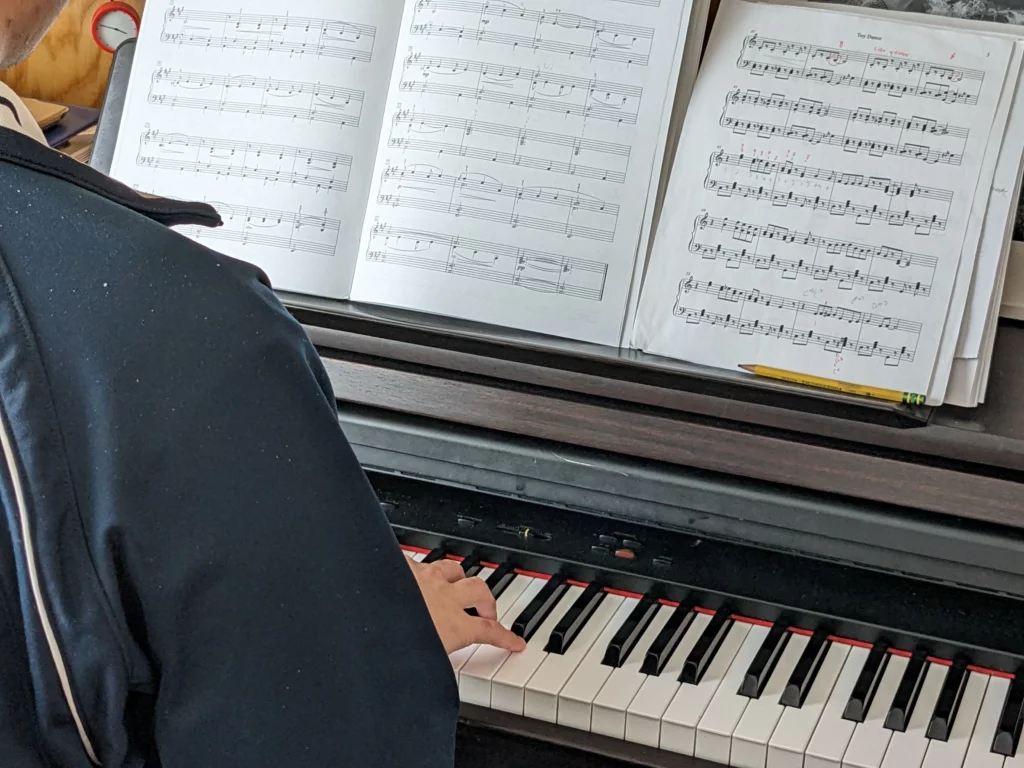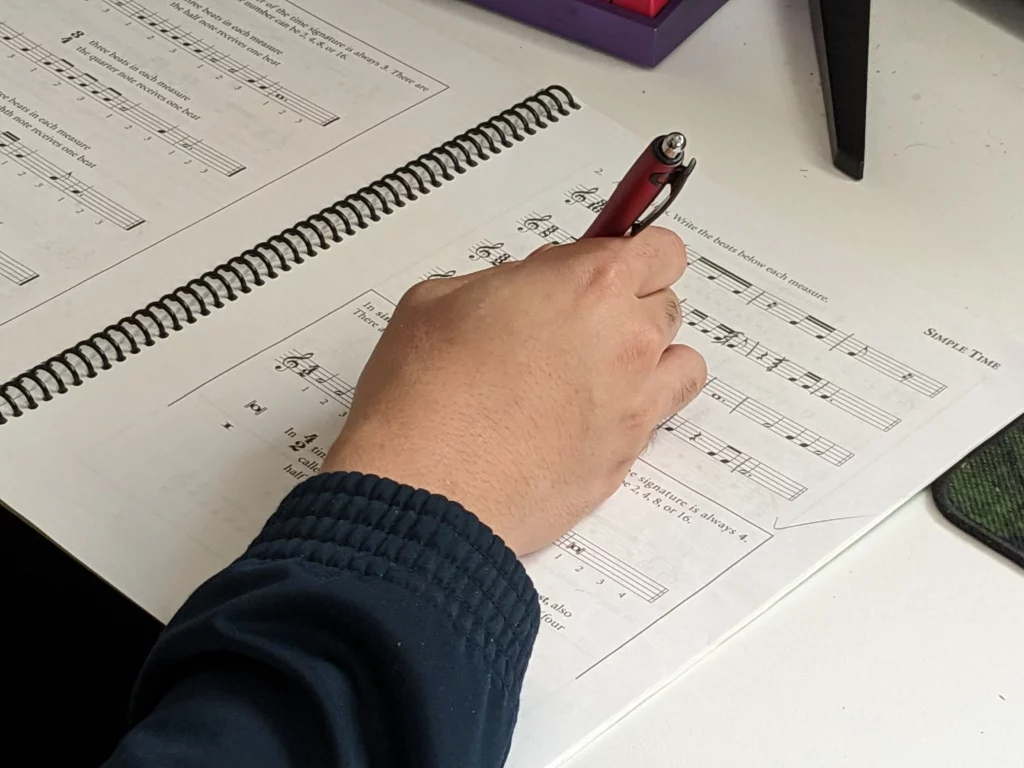This post contains affiliate links.
For a long time, reading sheet music has been one of the essential skills that every musician needs to learn, especially piano players. For many musicians, pianists included, knowing how to read sheet music is as important as learning your ABCs.

Why is this? What benefits do you get from knowing how to read sheet music?
Join me today as I discuss the 7 huge benefits you get from knowing how to read sheet music and some downsides of it.
1. The easiest way to play the piano
Compared to other ways, sheet music is the easiest way to play the piano. There’s a reason why one of the first lessons a piano teacher teaches their students is how to read sheet music.
Think of sheet music as step-by-step instructions that show you exactly how to play a piano piece from start to finish. Sheet music tells you when to play which notes, how long to hold them, how softly or loudly you need to play, whether to use the pedal and so much more.
In a way, sheet music is like an IKEA instruction manual to assemble a coffee table or a chair; in this case, you’re assembling the piece by playing it on the piano!
Also, by using sheet music, you’re playing the piece how the composer intended for it to be played, meaning you don’t need to do any guessing.
If you’re wondering about the alternative ways of playing the piano without sheet music and whether they are better than reading sheet music, check out this article, where I go more in-depth on the question Reading Sheet Music – Must You Know It to Play piano?
2. Learn music theory
By learning to read sheet music, you gradually understand more and more notations. With this knowledge as your foundation, you can learn more complex topics like major and minor scales, intervals, arpeggios, chord progressions, harmonies, etc. These concepts are used in all piano genres, whether jazz, classical, or pop.

By understanding music theory, you can effectively and efficiently improve your skills as a piano player. For example, you’ll start being able to identify chords instead of a collection of notes. Seeing chords instead of single notes will help you learn the piece quickly and easily, especially in pop music, which uses the same chords repeatedly.
Also, knowing music theory makes you appreciate the composition of a piece more, which lets you glimpse into the composer’s thoughts and emotions back when they composed this piece.
3. Improve your piano techniques
Once you learn how to read sheet music, you can start learning sight reading, where you can play any new pieces while reading the sheet music simultaneously without any practice beforehand.
Sight-reading is one of the core skills every serious piano player learns. It’s so important that there’s a section for sight reading during piano exams like the RCM or the ABRSM. Sight-reading helps you learn a piece faster because it trains you to see the piece in familiar scales, chords, and intervals instead of individual notes. The ability to play on the spot is also helpful in many situations.
Imagine you’re at a party, and someone asks you to play a piece you have never seen before. If you’re good at sight-reading, you’ll never be caught off-guard and can play anything on the spot.
Another example of how knowing how to read sheet music helps is practicing scales and arpeggios. Practicing scales and arpeggios help improve your speed and accuracy when striking keys, along with many more benefits that are discussed in this article.
Scales, arpeggios, and their derivatives are written down in sheet music form. So if you can read sheet music, you can practice them on the piano to improve your techniques
4. Learn harder pieces
In classical music, while you can play easier pieces by simply listening to the piece’s recordings, sheet music is almost mandatory to learn more advanced pieces. Advanced pieces have complex harmonies which are too difficult to be picked up by listening alone.
So while you may find it easy playing Satie’s Gymnopedie No.1 by ear, good luck trying to play Beethoven’s Moonlight Sonata Third Movement by ear! It’ll take years before you can get each note down correctly.
5. Help you learn other instruments
Sheet music is the universal language of all instruments. The piano, trumpet, drum, trombone, etc., all use the same black-and-white notes system to write down their music. So if you learn to read sheet music, you have the potential to play any instruments you want.
6. Essential for playing in a group
From bands to orchestras, everyone uses sheet music, regardless of what instruments they play. Using sheet music helps everyone be on the same page; everyone knows what to do without much back and forth between the members.

Each person can do extra practice at home using their sheet music, and when it’s time to play together, all the different instruments sync up naturally. That’s why with songs or pieces that use multiple instruments, their sheet music will also include those instruments.
7. Must-have for composing your own songs
Like how humans write books to pass knowledge to the next generations, composers and songwriters write their music on sheet music for future musicians to study and play them.
If, at some point, you want to start making your own original songs, then you have to learn sheet music. It’s the only way to record music.
Some disadvantages of knowing how to read sheet music
The only downside to reading sheet music is that some musicians, especially piano players, only play piano using sheet music. They rely too much on sheet music and must develop their listening skills.
Not training your ears limits your creativity. Ear training is vital, and it’s also part of RCM and ABRSM piano exams’ curriculums. During the exam, examiners ask students to identify the intervals by listening to the sound.
So the lesson here is never to neglect your training. It’s ok to have favorites. Some like to play by ear, while others prefer sheet music. But remember to train your other aspects to become a well-rounded piano player and musician.
Tips for learning to read sheet music
If you want to learn to read sheet music in the shortest amount of time, check out my 5 Tips to Quickly Teach Yourself to Read Sheet Music

